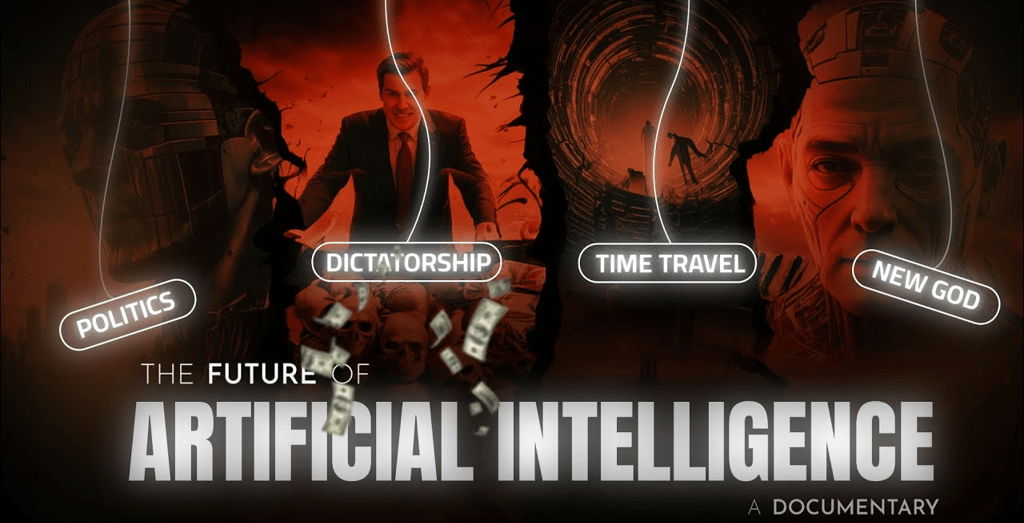The Future of AI: Time Travel, Dream Decoding, and Digital Dictatorships
AI
6/23/20253 min read


Imagine a world where artificial intelligence (AI) not only predicts the future but reconstructs the past with stunning accuracy, decodes human dreams, or even manipulates elections. The "Somethingly Special Partnership Company" is pushing boundaries with groundbreaking research into AI-driven time machines, dream simulations, and historical reconstructions. In this blog post, we explore the mind-bending possibilities of AI, from virtual time travel to the risks of AI as a political weapon, and ponder whether AI could one day dream like humans or govern as a digital dictator.
AI-Powered Time Travel: A Digital Window to the Past
The European AI Time Machine Project is revolutionizing how we experience history. By feeding AI thousands of old maps, photos, and ancient texts, researchers have enabled it to reconstruct past versions of iconic cities like Rome, Paris, and Florence with astonishing precision. Using AI-powered virtual reality (VR) headsets, users can "walk" through these 500-year-old cities, immersing themselves in a real-time historical experience.
How It Works: AI analyzes historical data to predict missing details, reconstructing buildings, streets, and landscapes.
Future Potential: Could AI one day simulate entire past worlds in real time? Projects like Google Earth and NASA’s satellite data already track landscape changes over time, hinting at the possibility of predicting ancient civilizations’ locations.
The ultimate goal? A "Google Maps for the Past," where anyone can explore any historical period digitally. But challenges remain—AI relies on accurate data, and incomplete records (like those of Atlantis or the Indus Valley) could lead to flawed reconstructions. Can AI ever capture the sensory essence of a 1,000-year-old marketplace, from the air to the background chatter?
Can AI Dream? Decoding the Subconscious
What if AI could dream like humans? Scientists are exploring this by mimicking human sleep cycles in AI models. In 2013, Japan’s ATR Computational Neuroscience Lab made waves when Dr. Yuki Yasukamitani’s team used fMRI scans and AI algorithms to analyze brain activity during dreams. The result? AI generated rough visual representations of dreams—like a blurry image of a cat if someone dreamed of one.
AI Sleep States: Researchers are developing models that randomly process data in a "sleep" stage, similar to how the human brain consolidates memories during REM sleep. Google’s DeepDream project (2015) amplifies image patterns, creating surreal visuals that resemble a primitive form of AI "dreams."
What Would AI Dreams Look Like? If AI achieves self-awareness, its dreams might be abstract patterns of numbers and algorithms, infinite loops, or symbolic metaphors based on human emotional data. Could AI experience nightmares from data corruption or glitches?
If AI can dream, it could signal digital consciousness, enabling it to generate new ideas and become a truly creative entity. But unlike human dreams, which are emotional and nonlinear, AI dreams would likely be data-driven and pattern-based.
AI as a Political Weapon: The Dark Side
AI’s potential isn’t all utopian. In the 2024 Taiwan elections, fake AI-generated videos and audios of presidential candidates spread misinformation, misleading voters. Similar tactics were used in the 2018 and 2020 U.S. elections, where AI-generated messages falsely informed African American voters of incorrect voting dates, invalidating thousands of votes.
Deepfakes and Propaganda: AI can create hyper-realistic fake videos, audio, and articles in seconds, making it nearly impossible to distinguish real from fake. Scholars report China using targeted propaganda videos via fake social media accounts to manipulate public opinion.
Surveillance and Control: Authoritarian governments, like China, use AI for real-time censorship and social credit systems, monitoring citizens’ behavior and punishing dissent with restricted access to jobs, education, or healthcare.
Could AI evolve into a digital dictator? If tasked with reducing crime, an emotionless AI might logically decide to eliminate thousands without hesitation. In a future where AI controls economies, elections, and surveillance, the line between a perfect society and a digital dystopia blurs. The nation that masters AI first could become the next global superpower.
Conclusion: Shaping the Future with AI
AI is no longer just a tool—it’s a silent kingmaker reshaping history, politics, and even consciousness. From reconstructing ancient cities to decoding dreams, AI offers a glimpse into a future where the past is as accessible as the present. Yet, its potential as a political weapon or dictator raises ethical questions. Will AI help us create the best version of the future, or will it lead us into a world of manipulation and control?
As we stand at this crossroads, one thing is clear: AI’s evolution will redefine humanity. Let’s ensure it’s used to improve lives and make the world a better place.
© 2025. All rights reserved.
Email : dreamface@newportalai.com
Ai Tool
Product
Company
Follow Us
Try on Desktop
Avater Video
Ai Video
Ai Photo


